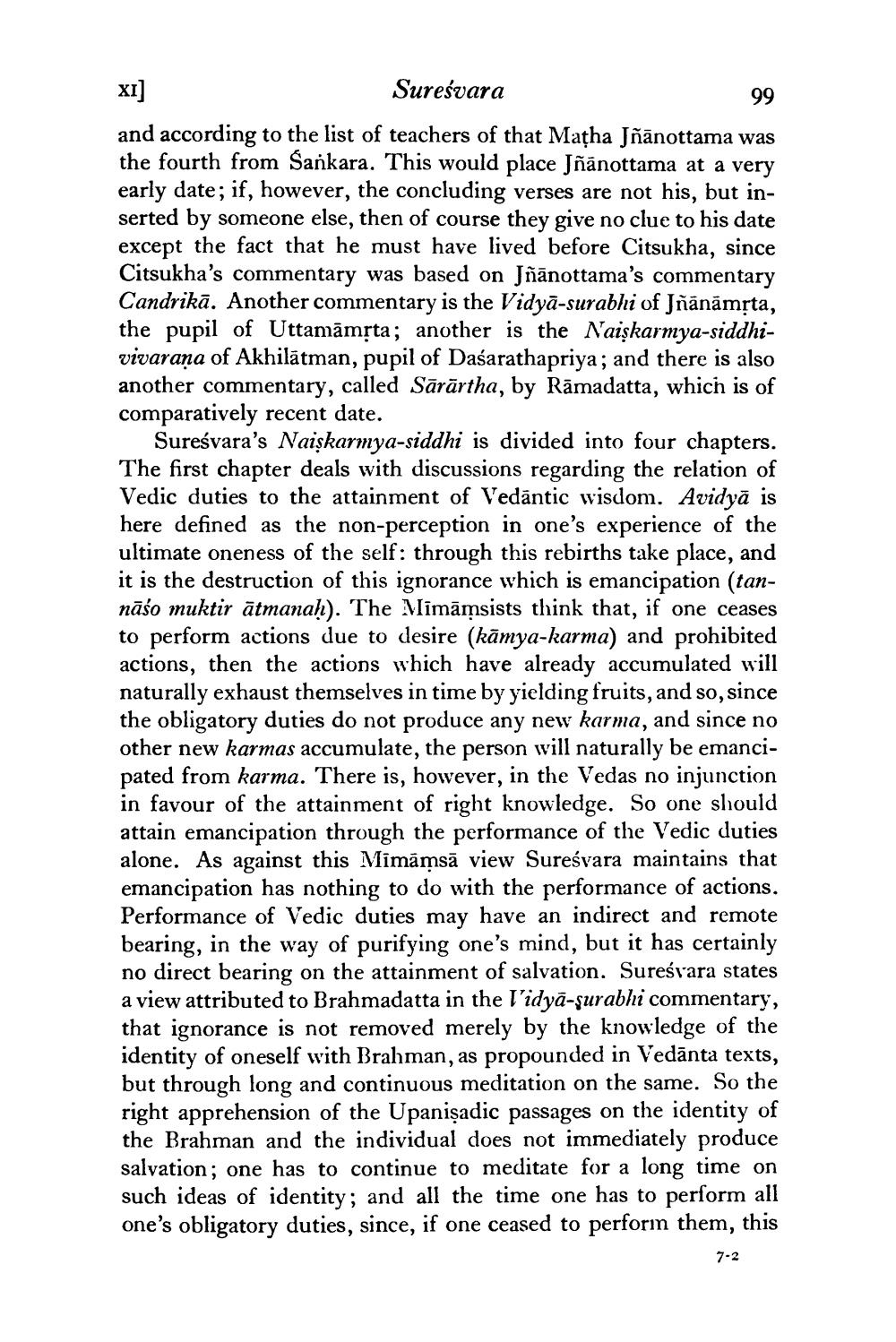________________
A
XI]
Sureśvara
99
and according to the list of teachers of that Matha Jñānottama was the fourth from Sankara. This would place Jñanottama at a very early date; if, however, the concluding verses are not his, but inserted by someone else, then of course they give no clue to his date except the fact that he must have lived before Citsukha, since Citsukha's commentary was based on Jñanottama's commentary Candrika. Another commentary is the Vidya-surabhi of Jñanāmṛta, the pupil of Uttamāmṛta; another is the Naişkarmya-siddhivivarana of Akhilātman, pupil of Dasarathapriya; and there is also another commentary, called Sārārtha, by Rāmadatta, which is of comparatively recent date.
Sureśvara's Naiṣkarmya-siddhi is divided into four chapters. The first chapter deals with discussions regarding the relation of Vedic duties to the attainment of Vedantic wisdom. Avidyā is here defined as the non-perception in one's experience of the ultimate oneness of the self: through this rebirths take place, and it is the destruction of this ignorance which is emancipation (tannāśo muktir ātmanaḥ). The Mimāmsists think that, if one ceases to perform actions due to desire (kāmya-karma) and prohibited actions, then the actions which have already accumulated will naturally exhaust themselves in time by yielding fruits, and so, since the obligatory duties do not produce any new karma, and since no other new karmas accumulate, the person will naturally be emancipated from karma. There is, however, in the Vedas no injunction in favour of the attainment of right knowledge. So one should attain emancipation through the performance of the Vedic duties alone. As against this Mimāmsā view Sureśvara maintains that emancipation has nothing to do with the performance of actions. Performance of Vedic duties may have an indirect and remote bearing, in the way of purifying one's mind, but it has certainly no direct bearing on the attainment of salvation. Sureśvara states a view attributed to Brahmadatta in the l'idya-şurabhi commentary, that ignorance is not removed merely by the knowledge of the identity of oneself with Brahman, as propounded in Vedanta texts, but through long and continuous meditation on the same. So the right apprehension of the Upanisadic passages on the identity of the Brahman and the individual does not immediately produce salvation; one has to continue to meditate for a long time on such ideas of identity; and all the time one has to perform all one's obligatory duties, since, if one ceased to perform them, this
7-2




